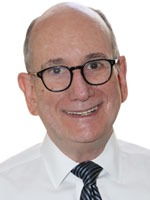The 2016 presidential election campaign
An observation and a lesson to be learned
I don’t know when the 2016 presidential election campaign actually began, but it feels like an eternity. What I do know is on Tuesday, November 8, it will be over. Wow, we still have four months to go. Too bad there isn’t a way we can move it up and get it over.
There’s no question this has been the most historic presidential campaign of our lifetime; it’s been truly transformational. Few can deny that the political world has been turned upside down.
How this happened will be debated, discussed and dissected by pundits and historians for years to come. But with months still to go, I have some thoughts about the campaign and trial lawyers. Actually, I have one observation and one lesson that can be learned.
First, the observation
As Peter Coy wrote in the February 25 issue of Bloomberg Businessweek, “This is a different kind of election year, full of contempt for Big Business.”
For trial lawyers, that’s a surprising but refreshing revelation, especially when you realize it’s coming from both parties.
Looking at the Democratic side, Coy states what we already know, that “Bernie Sanders has built an entire campaign around the refrain that Wall Street is guilty of ‘greed, fraud, dishonesty and arrogance.’” He also writes that under pressure from Sanders, Hillary Clinton came out against the pro-business Keystone XL pipeline and the 12-nation Trans Pacific Partnership (TPP) trade deal.
But what’s most interesting is what Coy writes about the Republicans and it’s quite a departure from your grandfather’s GOP.
“Billionaire flamethrower (and Republican nominee) Donald Trump has gone after Ford Motor, Kraft Foods, and Apple, among others, for making things outside of the U.S.” and when Ted Cruz was in the race he “presented himself as the nemesis of corporate welfare and crony capitalism.”
The public isn’t enamored with Big Business either. According to a survey by Pew Research Center conducted last fall, small business is twice as popular as Big Business. In a January Gallup poll 63 percent of respondents said they were dissatisfied with the size and influence of major corporations.
Other media outlets have also noticed that while the Republican candidate is a businessman, corporate America isn’t behind him.
Don Lee wrote in the May 30 issue of the L.A. Times “Even as the Republican establishment and leading conservative groups are starting to warm to Donald Trump, a large and important segment of the Republican base has been conspicuously quiet: corporate America.”
Lee adds that “Wall Street and the nation’s business community have historically been dependable backers of the Republican Party. Yet with the exception of a relatively small number of corporate leaders, the business world by and large has been lying low, unwilling to associate with Trump.”
To me, the observation that Big Business isn’t popular presents an unexpected opportunity for the consumer trial bar to communicate their message that they protect people from unsafe products, unsafe medicine and unfair business practices.
So, how do you do that? The answer is take a lesson in communication from the candidates and the campaigns, but not in the way you think.
Past elections have seen candidates use advertising to take their message to the public. Not this time. This time it’s mainly “earned” media.
The lesson, “face-to-face contact”
But while pundits and experts say the new social media strategies have resulted in the public connection with the candidates, I disagree. I believe it’s the old-fashioned strategy of face-to-face contact that has let the candidates reach their base so effectively.
All of the candidates, but especially Trump and Sanders, have used rallies and speeches to reach their followers and nothing beats a face-to-face connection, even with a large group. In-person contact is much more personal and credible than a tweet, blog or podcast.
I’m not suggesting that trial lawyers hold huge political rallies, but I am suggesting that they make public speaking appearances whenever possible.
Speaking to small groups in casual settings is the most comfortable and effective way for trial lawyers to communicate to the public who they are, what they do and what they believe in.
Speaking to service clubs, grassroots organizations and chambers of commerce in your own community is a great way to get your message across.
If you aren’t sure what organizations are in your area, municipal web sites provide a list of local service clubs and organizations in the community.
These groups all have regular meetings, mostly during the day and they are always looking for speakers. The presentations are short, about fifteen minutes, but also give you time to answer questions. CAALA members who have done these types of presentations find it’s a lot less intimidating to speak to a small group in your community than to make a closing argument to a jury.
I know that using social media and technology to connect with people is in vogue now, and I’m not telling you to ignore your social media outlets. Just remember you are connecting with people, not entities and achieving understanding of what you do is best attainable through in-person interactions.
If face-to-face contact works for presidential candidates, it can work for trial lawyers too, even if it’s on a much smaller scale.
Stuart Zanville

Stuart Zanville is the Executive Director of the Consumer Attorneys Association of Los Angeles (CAALA). Contact him at (213) 487-1212 or by e-mail: stuart@caala.org.
Copyright ©
2025
by the author.
For reprint permission, contact the publisher: Advocate Magazine
